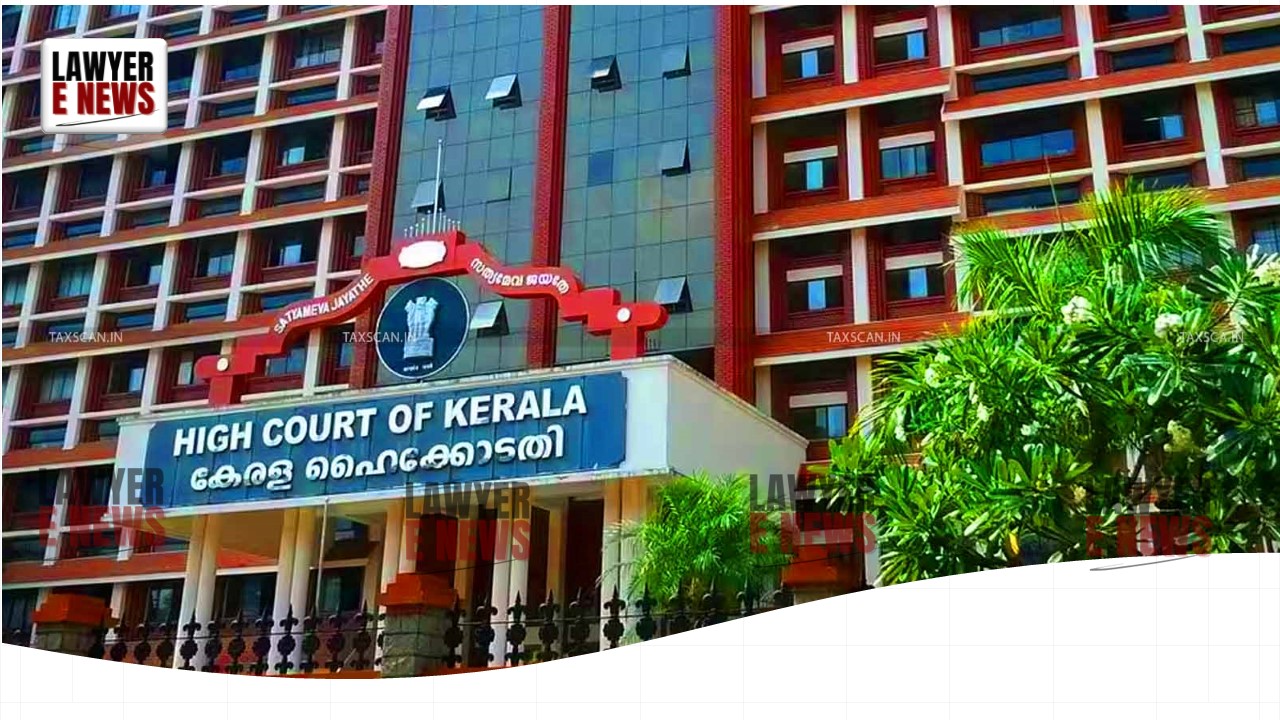-
by Admin
15 February 2026 5:35 AM



Kerala High Court quashed the criminal proceedings against Benny Mathew and Others, office bearers of the RDS Retreat Apartment Owners Welfare Association, for alleged disconnection of water supply to the rental flat of the defacto complainant due to non-payment of arrears. Justice A. Badharudeen held that the disconnection was lawful, made after notice, and temporary, with water supply restored upon payment of arrears. The Court observed that the acts of the petitioners did not amount to "mischief" under Section 430 read with Section 34 IPC.
The Court held that mischief under Section 430 IPC requires proof of wrongful intent or permanent diminution in the water supply. It ruled:
"The overt acts at the instance of the petitioners would not amount to an act of mischief as defined under Section 425 IPC and punishable under Section 430 IPC, where the disconnection of water supply was reconnected soon after payment of defaulted arrears." [Paras 23-24]
The defacto complainant, a tenant in the RDS Retreat Apartments, alleged that the petitioners, acting as office bearers of the apartment owners' welfare association, disconnected her water supply due to non-payment of Rs. 51,334 in arrears. She claimed the disconnection disrupted her access to water for basic needs like drinking, cooking, and sanitation.
The primary legal issue was whether the temporary disconnection of water supply to the defacto complainant’s flat for non-payment of arrears constituted mischief under Section 430 IPC.
The petitioners contended that the disconnection was lawful, made after notice, and without any intent to cause wrongful loss or damage. The prosecution, however, argued that the act interfered with the complainant’s access to water for drinking and cooking, thus attracting Section 430 IPC.
Referring to Section 425 IPC, which defines mischief, the Court stated that an act constitutes mischief only if done with wrongful or dishonest intent to cause loss or damage. Section 430 IPC applies specifically to acts that diminish the supply of water for essential purposes like food, drink, or cleanliness.
The Court held: “Not every interference with the distribution of water constitutes mischief. It is only interference which cannot be justified by the assertion of a bona fide right that would constitute mischief.” [Para 16]
The Court found that the petitioners’ actions were lawful and justified. The disconnection was a temporary measure taken after the complainant failed to pay arrears despite notice. Water supply was promptly restored upon payment. This negated any inference of dishonest or unlawful intent.
Citing Uttam Basu v. Geeta Mullick [(1987) 1 Crimes 512 (Cal)], the Court reiterated that temporary stoppage of water does not constitute mischief under Section 430 IPC unless there is regular or habitual diminution of supply.
The Court acknowledged that the association, as the managing body of the apartment complex, has the right to collect water charges from flat owners and take necessary action, including temporary disconnection for non-payment. It noted:
“If all flat owners defaulted water supply charges, the association would be forced to file civil suits for recovery, which would disrupt its functioning.” [Para 20]
The Court observed that disputes over non-payment of water charges are civil in nature and do not attract criminal liability under the IPC. It rejected the complainant’s argument that the association lacked the legal authority to disconnect water supply, emphasizing that the disconnection followed proper notice and procedural safeguards.
The Court concluded that the prosecution lacked prima facie evidence to sustain the charges under Section 430 IPC. It quashed the proceedings in C.C. No. 687/2023 pending before the Additional Chief Judicial Magistrate Court, Ernakulam.
The defacto complainant was directed to pay all water charges promptly to ensure uninterrupted supply.
The association was allowed to take lawful action in case of further non-payment.
The Court emphasized that the complainant must comply with the association’s regulations to avoid similar issues in the future.
This judgment reinforces the principle that criminal proceedings cannot be used to settle civil disputes, especially when the actions of the accused are lawful and justified. It provides clarity on the application of Section 430 IPC in cases involving temporary disruptions of essential services like water supply.
By upholding the rights of apartment associations to enforce payment of charges, the judgment balances the interests of collective management and individual residents, while discouraging misuse of criminal law to resolve private disputes.
Date of decision: January 8, 2025
